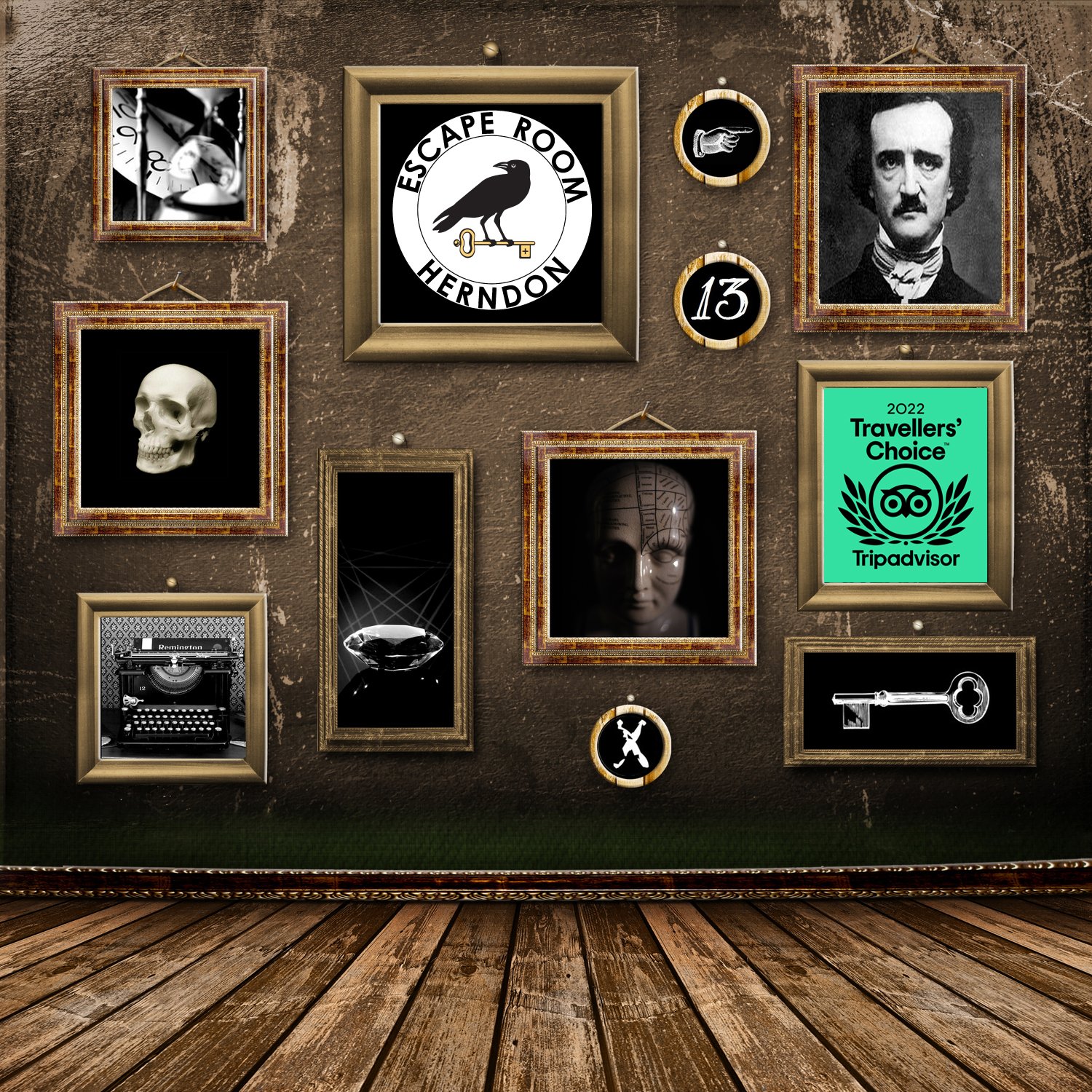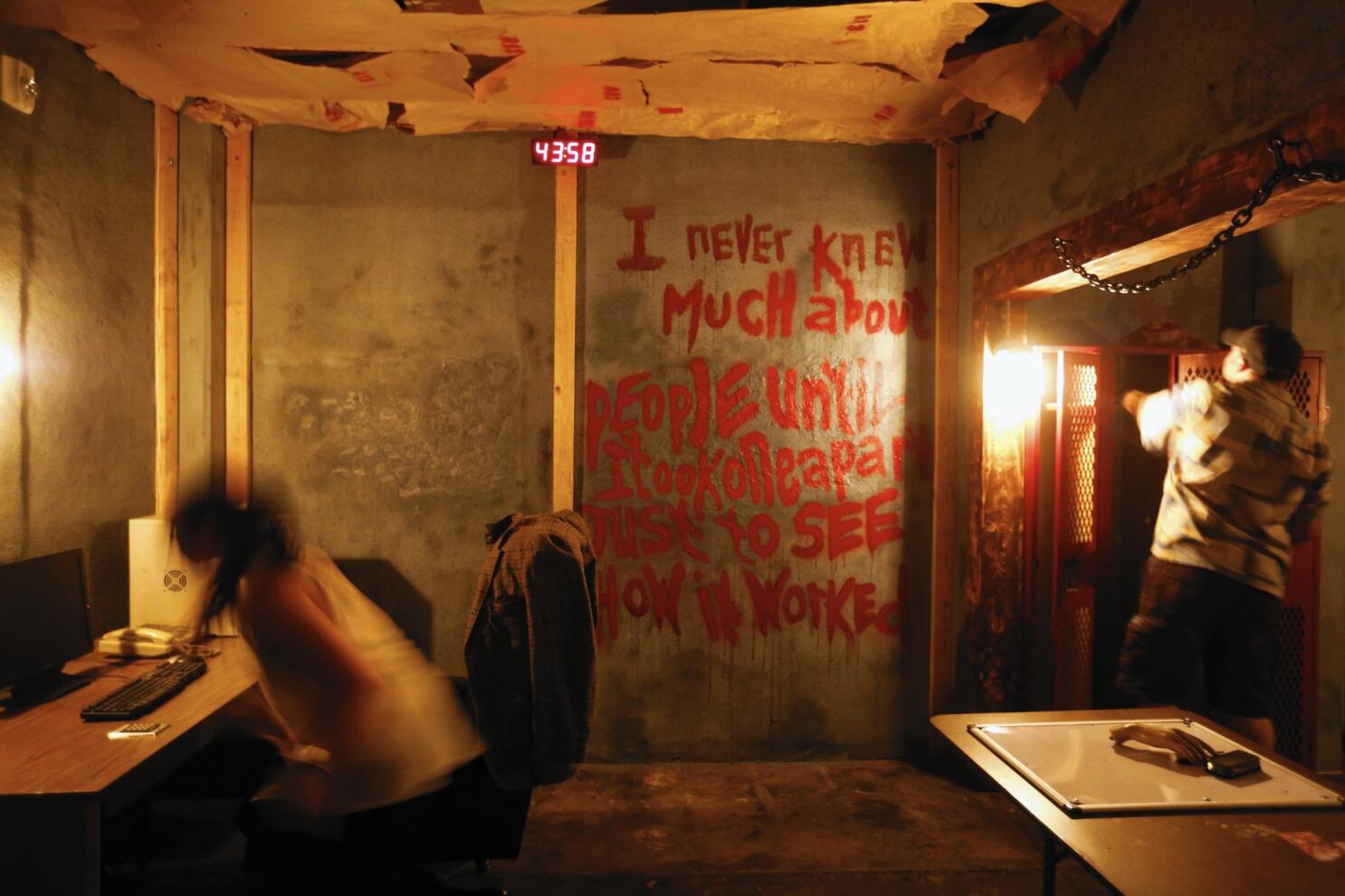Best Escape Room-- Test Your Skills and Resolve the Mystery
Best Escape Room-- Test Your Skills and Resolve the Mystery
Blog Article
Team Techniques: How to Team up Effectively in an Escape Room
Teams have to actively pay attention to each member's understandings, designate duties that line up with specific staminas, and keep routine check-ins to make sure focus and protect against redundancy. By promoting a setting that values cohesion and flexibility, teams can dramatically heighten their effectiveness and success prices.
Establish Clear Interaction

To promote clear communication, it is necessary to assign a central factor of contact for details dissemination. This duty includes summarizing findings and recommended techniques to ensure every person remains on the very same page. Furthermore, taking on a methodical approach to conversations can prevent chaotic exchanges. As an example, brief, concentrated updates from each employee can keep the team informed without overwhelming them with details.

Designate Duties Tactically
While clear communication establishes the foundation for reliable team effort, appointing functions strategically ensures that each group member's strengths are used effectively. In a retreat room circumstance, the time-sensitive and complex nature of obstacles demands a well-organized strategy to task delegation. By recognizing and leveraging individual expertises, teams can enhance their problem-solving capacities and improve total performance.
Somebody with an eager eye for information may excel in finding hidden objects, while a rational thinker can be much better matched to addressing problems. This duty typically calls for strong organizational and social skills.
Second, guarantee that functions are versatile and adaptable. As new challenges emerge, the team should be able to pivot, reallocating tasks as required. This adaptability helps keep energy and prevents traffic jams that can take place as a result of stiff function projects.
Ultimately, a calculated strategy to duty task not just takes full advantage of the staminas of each employee yet additionally fosters a natural atmosphere, driving the group in the direction of an effective escape.
Utilize Diverse Abilities
Identifying and taking advantage of the diverse skills within your team can significantly boost your performance in a retreat room. Each staff member brings unique staminas to the table, and efficiently leveraging these capabilities can speed up analytic and improve total effectiveness. Source A group member with strong logical abilities might excel at understanding complicated codes or patterns, while an additional with keen observational capacities might rapidly identify surprise clues that others may ignore.
Encourage team members to voice their insights and concepts without delay, making sure that all possible remedies are taken into consideration. In addition, designating jobs that line up with each member's strengths can prevent bottlenecks and make certain that progression is continual.
Additionally, variety in abilities usually converts to variety in thinking styles, which is invaluable in a retreat area setting. While some difficulties might need logical thinking and accuracy, others may benefit from creative and lateral reasoning. By identifying and leveraging this variety, teams can resolve a more comprehensive variety of difficulties much more effectively, therefore raising their opportunities of a successful escape.
Manage Time Properly

Identify visible problems and split tasks based on group members' staminas, ensuring that nobody is idle. This practice can aid maintain the team concentrated and avoid time from slipping away undetected.
In addition, avoid passage vision. If a puzzle is taking also long, turn team participants or go on to another obstacle, returning later on see with fresh point of views. Communication is vital-- keep every person updated on addressed challenges and remaining tasks to prevent redundant initiatives.
Lastly, make use of any type of tips or hints moderately however purposefully - best escape room. Understanding when to ask for assistance can conserve beneficial time. By sticking to these time management concepts, teams can dramatically improve their opportunities of a successful and satisfying escape room experience
Debrief and Mirror
Reflection is a crucial aspect of group growth and enhancement in the context of retreat rooms. When the obstacle is finished, whether successfully or otherwise, it is crucial for the team to take part in a structured debriefing session. This process enables employee to evaluate their performance, recognize strengths, and identify locations for renovation.
Begin the debrief by discussing what worked out. Highlight details instances of effective communication, analytical, and cooperation. Identifying these positive behaviors strengthens them and motivates their rep in future obstacles.
Review minutes of complication, miscommunication, or inadequate approaches. Urge an open and positive discussion where group participants can share their point of views without concern of criticism.
Final Thought
In final thought, successful collaboration in an escape room is based upon clear interaction, calculated function projects, the effective utilization of diverse skills, and efficient time administration. Routine check-ins and structured debriefings are essential for keeping emphasis and promoting continuous renovation. By producing a natural and flexible team environment, the chance of successfully fixing puzzles and attaining the goal of leaving the room is dramatically enhanced. This site here approach not just guarantees success but likewise promotes cumulative development and understanding.
Report this page